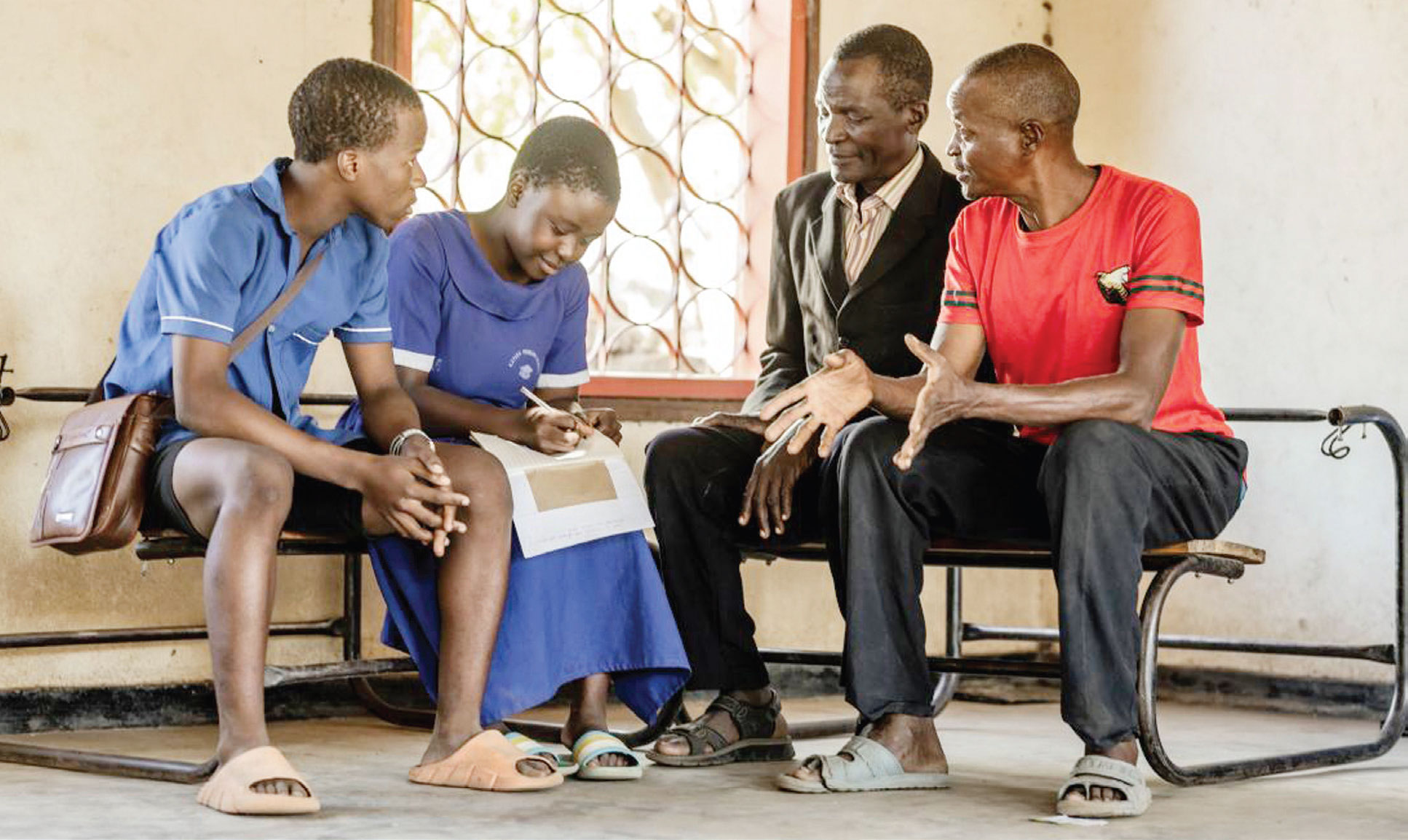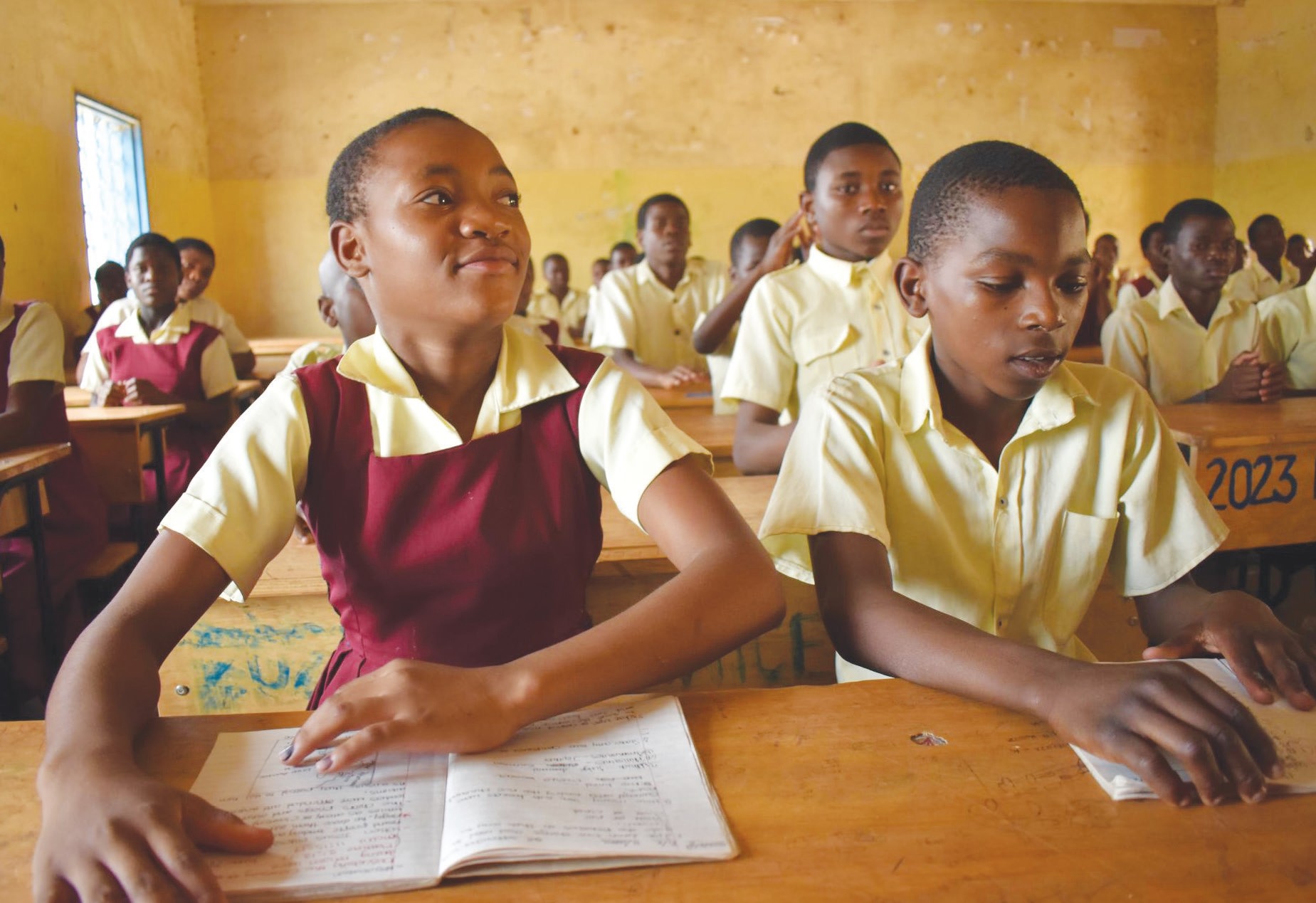Returning girls back to their future

In 2010, while in Standard Seven, 18-year-old Roda Chimwaza from Mvakudeni Village, Traditional Authority Mabulabo in Mzimba got pregnant.
Things turned nasty for the girl. Her uncle, who she was staying with Phalombe, was furious. She dropped out of school and her uncle sent her home in Mzimba.
“I was influenced by my friends to fall in love. They said a love relationship without having sex was incomplete hence when my boyfriend demanded it [sex] I did not hesitate,” says Roda.
She could not believe that her dream to become a teacher had been shuttered. She pondered over it and decided to go back to school. In 2012, she started attending classes.
Not everything, however, was rosy at school. She had to endure discrimination from peers.
“I was being laughed at because I have a child. Even back at my village, I faced insults from friends arguing that I am crazy to go back to school instead of being at home taking care of my child and get married,” says Roda.
This, she adds, affected her performance in class; as a result, she began thinking of dropping out of school for good.
But as she was about to leave school, the Creative Centre for Community Mobilisation (Creccom) came in.
Through the ‘enhancement of girls’ participation and completion of primary education’ project which Creccom is implementing in her area, a number of teachers, mother-groups and community members have trained on how to encourage girls who dropped out of school to go back.
The project’s target is to rescue 48 000 children especially those aged between six and 13.
According to Creccom programme officer Maclean Simika, the project’s purpose is to support national efforts to ensure that all children, both boys and girls, complete primary education by 2015.
Simika explains: “Malawi still stands far from the education Millennium Development Goal of universal primary completion because of the high number of the dropouts within the primary cycle. The primary school level has very low completion rates with only 35 percent of those who enter school completing the cycle due to very frequent dropouts within the primary cycle. Therefore, our project aims at helping girls to go back to school so that they can still accomplish their goals in life.
“When Roda dropped out of school, it meant her dream to become a teacher had been closed. However, now she has a different story to tell because as she is back in school it means her journey to become a teacher will be realised. That is what our project aims to achieve.”
There is a deep-rooted culture in Malawian societies that it is better to educate a boy than a girl because the latter will marry and be taken care of by her husband. However, Creccom faults the attitude because it contributes to gender inequality as it advocates for prosperity of men leaving out women who happens to be in majority in the country.
“Girls are more affected than boys in primary schools due to cultural practices that encourage early marriages, early pregnancies and school environments that hinder attendances of girls and contribute to their dropping out of school,” says Simika.
For a long time, mothers from Nkhamenya Zone, which falls under the catchment area of Creccom’s project, have been forcing girls into early marriages saying they are poor to educate girls.
“Most of the girls get married early with the encouragement of the mothers. Therefore, this project civic educates and enlightens these mothers, through mother groups, on the dangers of pushing girls into early marriage and the importance of education to girls,” says Simika.
Eliza Betimila is one of the mother groups members.
“Although we have not gone far with education ourselves, Creccom’s project has helped us to realise that denying a girl child education is denying her a bright future. Through mother groups we encourage girls to work hard in school and stay away from sexual immoralities to avoid falling pregnant,” says Betimila.
By realising that other factors such as lack of toilets contribute to low school attendance of girls, Creccom encourages the communities to construct toilets in schools. Nkhakama Primary School is one of the schools that has had inadequate toilets, a situation which in turn girls especially when they start experiencing monthly periods. Since 1958, the situation at the school has changed this year with Creccom intervention to construct additional toilets.
Both parents and teachers are hopeful that their reinforcement of will see more girls finishing primary school and going for higher education.





